Invited Speakers
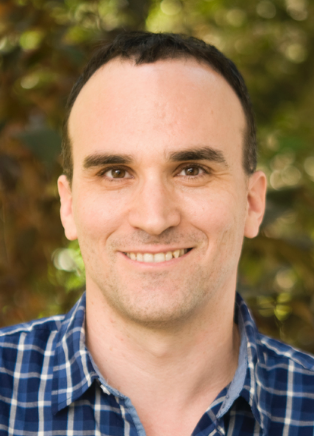 |
Amir Beck |
Amir Beck is a Professor in the Department of Industrial Engineering at The Technion—Israel Institute of Technology. He has published numerous papers, has given invited lectures at international conferences, and was awarded the Salomon Simon Mani Award for Excellence in Teaching and the Henry Taub Research Prize. His research interests are in continuous optimization, including theory, algorithmic analysis, and applications. He is an associate editor of Mathematics of Operations Research, Mathematical Programming, the Journal of Optimization Theory and Applications, Optimization Methods and Software and an area editor for optimization in Operations Research. His research has been supported by various funding agencies, including the Israel Science Foundation, the German-Israeli Foundation, the Binational US-Israel foundation, the Israeli Science and Energy Ministries and the European community.
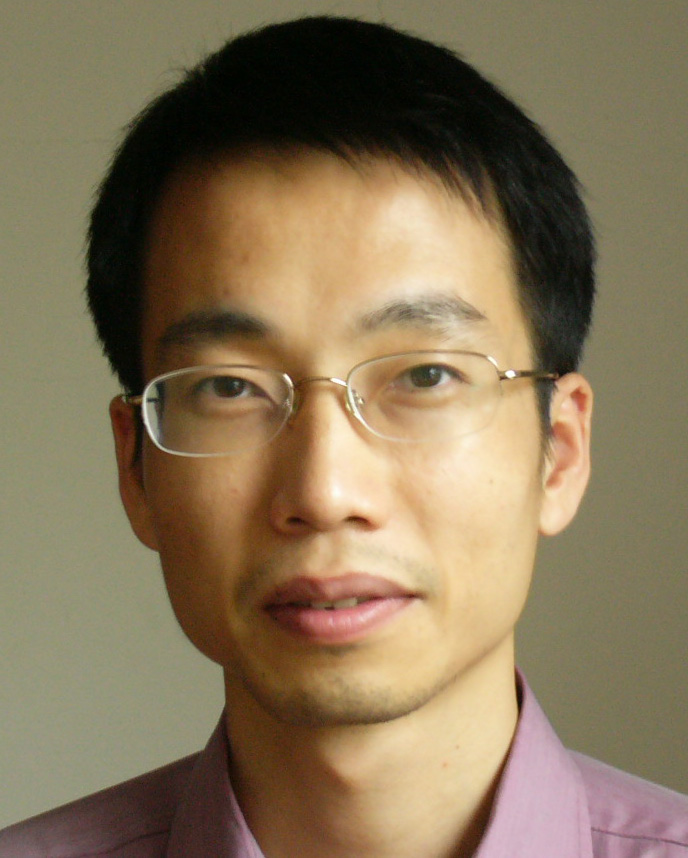 |
Jianfei Cai |
Jianfei Cai received his PhD degree from the University of Missouri-Columbia. He is currently an Associate Professor and has served as the Head of Visual & Interactive Computing Division and the Head of Computer Communication Division at the School of Computer Engineering, Nanyang Technological University, Singapore. His major research interests include visual computing, computer vision, machine learning and multimedia networking. He has published more than 180 technical papers in international conferences and journals. He is a co-recipient of paper awards in ACCV, IEEE ICIP and MMSP. He has been actively participating in program committees of various conferences. He has served as the leading Technical Program Chair for IEEE International Conference on Multimedia & Expo (ICME) 2012 and the leading General Chair for Pacific-rim Conference on Multimedia(PCM) 2012. He is currently an Associate Editor for IEEE Trans on Image Processing (T-IP) and has served as an Associate Editor for IEEE Trans on Circuits and Systems for Video Technology (T-CSVT).
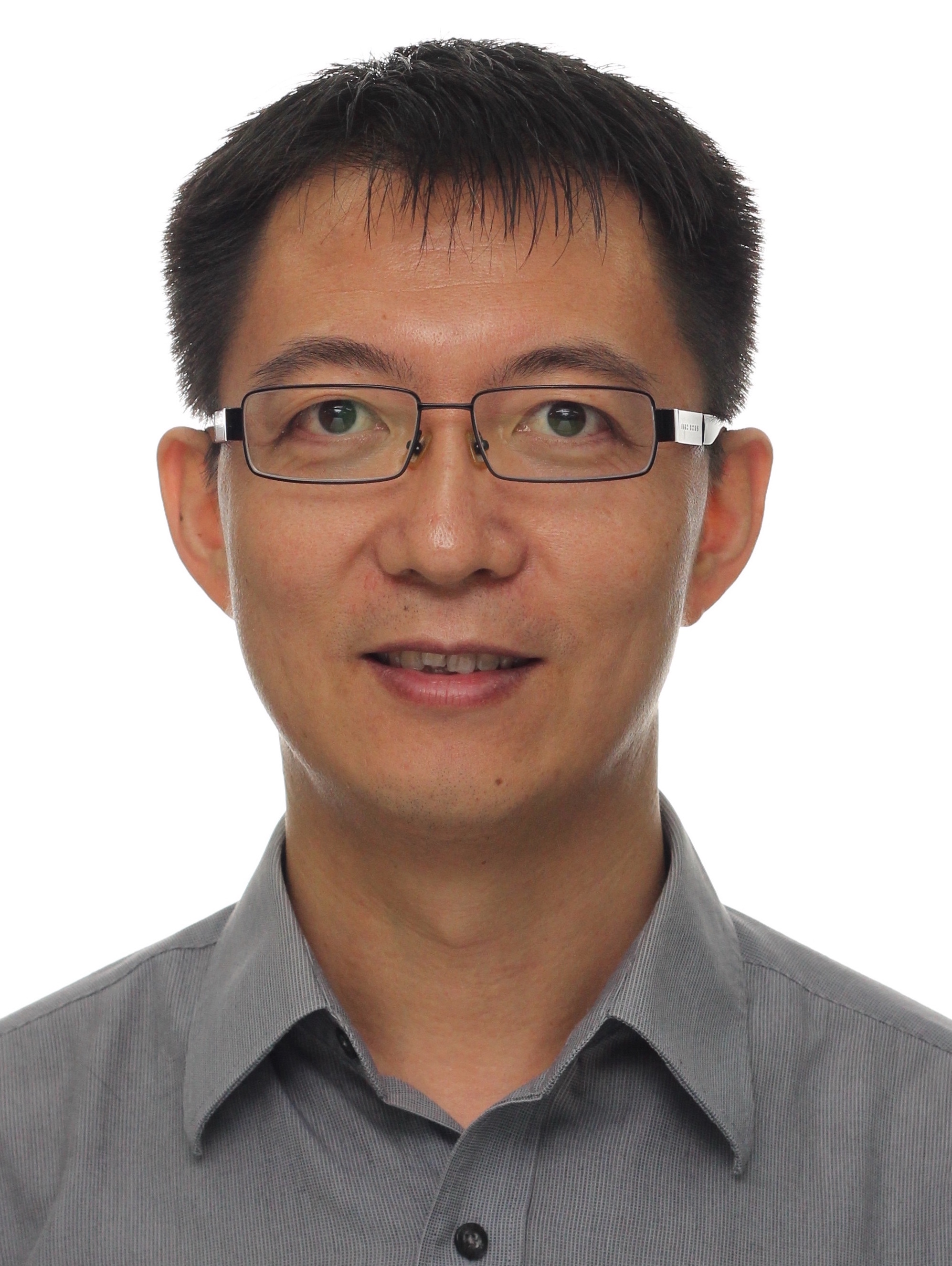 |
Gao Cong |
Gao Cong is currently an Associate Professor in the School of Computer Engineering, Nanyang Technological University (NTU). Before joining NTU, he was an Assistant professor in Aalborg University, Denmark. Before that, he worked as a researcher at Microsoft Research Asia. From 2004 to 2006, he worked as a postdoc in University of Edinburgh. He received his Ph.D. in Computer Science from National University of Singapore in 2004. His current research interests include geospatial and textual data management, data mining, context aware recommendation, and mining social networks and social media. His work was published in ACM SIGMOD, VLDB, ACM KDD, ICDE, WWW, ACM SIGIR, etc. He served as a PC co-chair for E&A track of VLDB 2014. He is an associate editor for ACM Transactions on Database Systems (TODS).
 |
Alfred Hero |
Alfred Hero received the B.S. (summa cum laude) from Boston University (1980) and the Ph.D from Princeton University (1984), both in Electrical Engineering. Since 1984 he has been with the University of Michigan, Ann Arbor, where he is the John H. Holland Distinguished University Professor of Electrical Engineering and Computer Science and the R. Jamison and Betty Williams Professor of Engineering. He is also the Co-Director of the University's Michigan Institute for Data Science (MIDAS) . His primary appointment is in the Department of Electrical Engineering and Computer Science and he also has appointments, by courtesy, in the Department of Biomedical Engineering and the Department of Statistics. From 2008-2013 he held the Digiteo Chaire d'Excellence at the Ecole Superieure d'Electricite, Gif-sur-Yvette, France.
He is a Fellow of the Institute of Electrical and Electronics Engineers (IEEE) and several of his research articles have received best paper awards. Alfred Hero was awarded the University of Michigan Distinguished Faculty Achievement Award (2011). He received the IEEE Signal Processing Society Meritorious Service Award (1998), the IEEE Third Millenium Medal (2000), and the IEEE Signal Processing Society Technical Achievement Award (2014). In 2015 he received the Society Award, which is the highest career award bestowed by the IEEE Signal Processing Society. Alfred Hero was President of the IEEE Signal Processing Society (2006-2008) and was on the Board of Directors of the IEEE (2009-2011) where he served as Director of Division IX (Signals and Applications). He served on the IEEE TAB Nominations and Appointments Committee (2012-2014). Alfred Hero is currently a member of the Big Data Special Interest Group (SIG) of the IEEE Signal Processing Society. Since 2011 he has been a member of the Committee on Applied and Theoretical Statistics (CATS) of the US National Academies of Science.
His recent research interests are in high dimensional spatio-temporal data, multi-modal data integration, statistical signal processing, and machine learning. Of particular interest are applications to social networks, network security and forensics, computer vision, and personalized health.
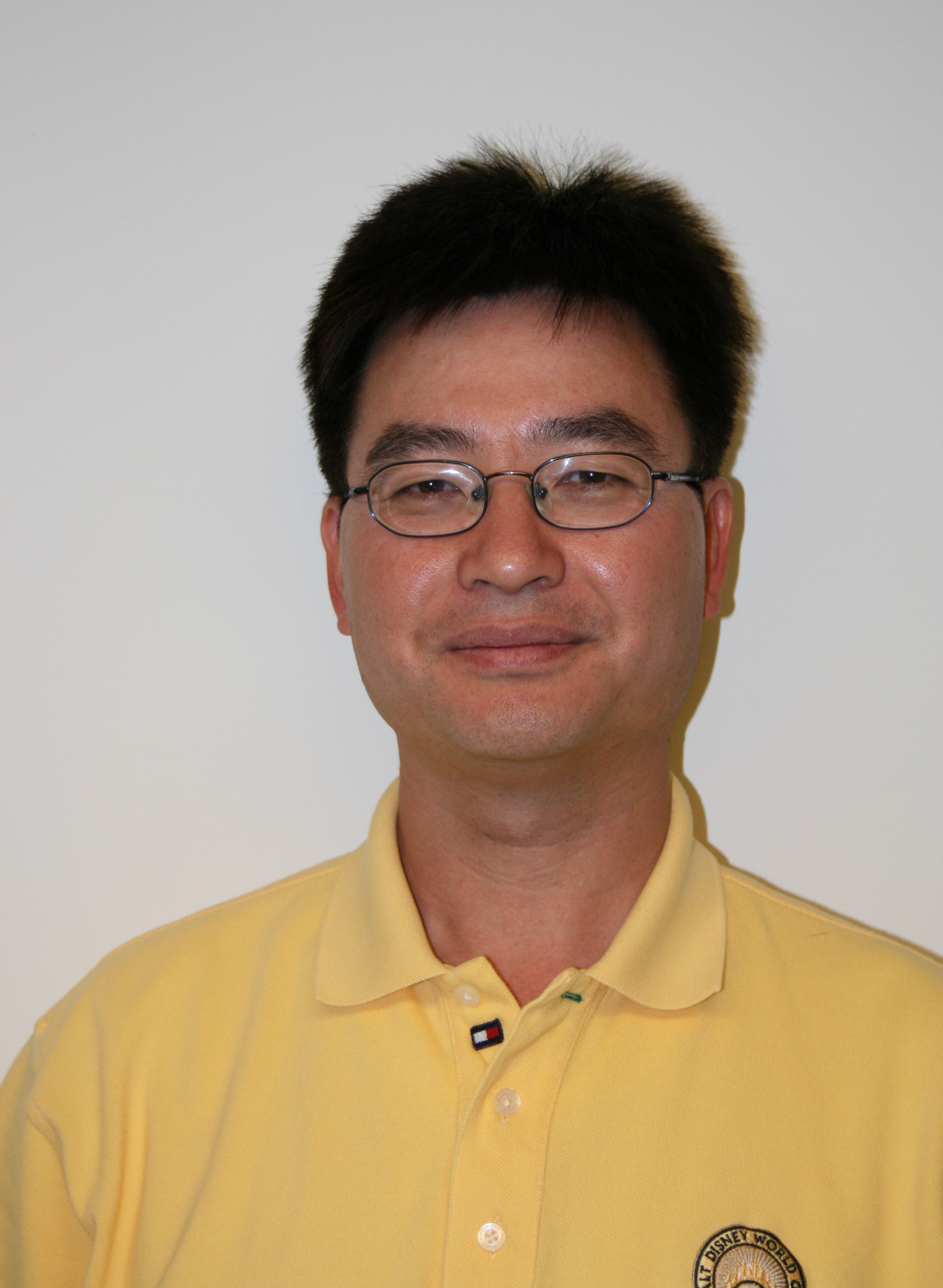 |
Feifang Hu |
Feifang Hu is a Professor at Department of Statistics, George Washington University. He is also a “Thousand Talents Program” Professor of China (The Recruitment Program of Global Experts). Professor Hu graduated from University of British Columbia with a PhD (1994) in Statistics. He is the winner of the best PhD thesis in Canada in the area of probability and statistics in 1994. In 2004, he got the Career Award from National Science Foundation in USA. In 2009, he was an elected Fellow of American Statistical Association. He was also an elected Fellow of Institute of Mathematical Statistics in 2009. Professor Hu is an international leading expert in the area of adaptive designs and methods.
Professor Hu’s research areas include: adaptive designs and methods; biostatistics, precision medicine; design of clinical trials; and big data analysis. He has published more than 60 papers in international leading journals of statistics since 2000. Professor Hu served as the associate editor (AE) of Annals of Statistics from 2007 to 2012. He is also the associate editor of Journal of American Statistical Association since 2011. Professor Hu was invited author of two white papers for FDA (Food and Drug Administration, USA). He is the author of the book: The Theory of Response- Adaptive Randomization in Clinical Trials (2006, John Wiley and Sons).
 |
Tao Jiang |
Tao Jiang received B.S. in Computer Science and Technology from the University of Science and Technology of China, Hefei, in July 1984 and Ph.D. in Computer Science from University of Minnesota in Nov. 1988. He was a faculty member at McMaster University, Hamilton, Ontario, Canada during Jan. 1989 - July 2001 and is now Professor of Computer Science and Engineering at University of California - Riverside (UCR). He is also a member of the UCR Institute for Integrative Genome Biology, a member of the Center for Plant Cell Biology, a principal scientist at Shanghai Center for Bioinformation Technology, and Chair Visiting Professor at Tsinghua University. He is a fellow of the Association for Computing Machinery (ACM) and of the American Association for the Advancement of Science (AAAS), and held a Presidential Chair Professor position at UCR during 2007-2010. He has published over 260 papers in computer science and bioinformatics journals and conferences, and won several best paper awards.
His recent research interest includes combinatorial algorithms, computational molecular biology, bioinformatics, and computational aspects of information retrieval.
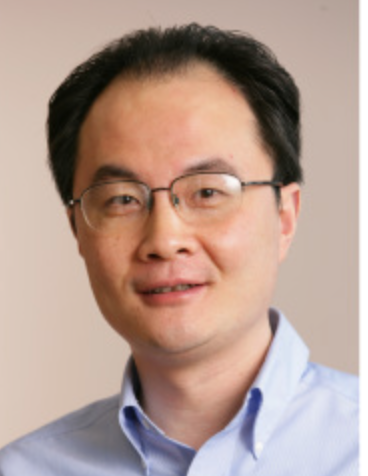 |
Hang Li |
Hang Li is director of the Noah’s Ark Lab of Huawei Technologies, adjunct professors of Peking University and Nanjing University. He is ACM Distinguished Scientist. His research areas include information retrieval, natural language processing, statistical machine learning, and data mining. Hang graduated from Kyoto University in 1988 and earned his PhD from the University of Tokyo in 1998. He worked at the NEC lab as researcher during 1991 and 2001, and Microsoft Research Asia as senior researcher and research manager during 2001 and 2012. He joined Huawei Technologies in 2012. Hang has published three technical books, and more than 120 technical papers at top international conferences including SIGIR, WWW, WSDM, ACL, EMNLP, ICML, NIPS, SIGKDD, AAAI, IJCAI, and top international journals including CL, NLE, JMLR, TOIS, IRJ, IPM, TKDE, TWEB, TIST. He and his colleagues’ papers received the SIGKDD’08 best application paper award, the SIGIR’08 best student paper award, the ACL’12 best student paper award. Hang worked on the development of several products such as Microsoft SQL Server 2005, Office 2007, Live Search 2008, Bing 2009, Office 2010, Bing 2010, Office 2012, Huawei Smartphones 2014. He has 42 granted US patents. Hang is also very active in the research communities and has served or is serving top international conferences as PC chair, Senior PC member, or PC member, including SIGIR, WWW, WSDM, ACL, NACL, EMNLP, NIPS, SIGKDD, ICDM, IJCAI, ACML, and top international journals as associate editor or editorial board member, including CL, IRJ, TIST, JASIST, JCST.
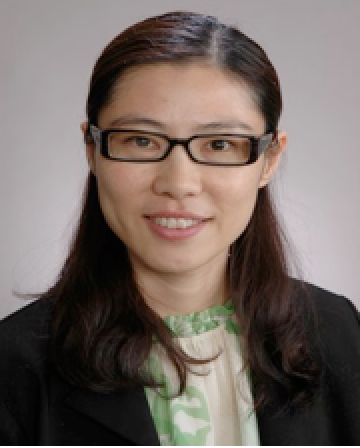 |
Anqi Qiu |
Anqi Qiu is associate professor at Department of Biomedical Engineering and Clinical Imaging Research Centre at National University of Singapore. She is also a principal investigator at Singapore Institute for Clinical Sciences of Agency for Science Technology and Research (A*STAR).
Dr. Qiu has been devoted to innovation in computational analyses of complex and informative datasets comprising of disease phenotypes and neuroimages to understand the origins of individual differences in health throughout the lifespan.
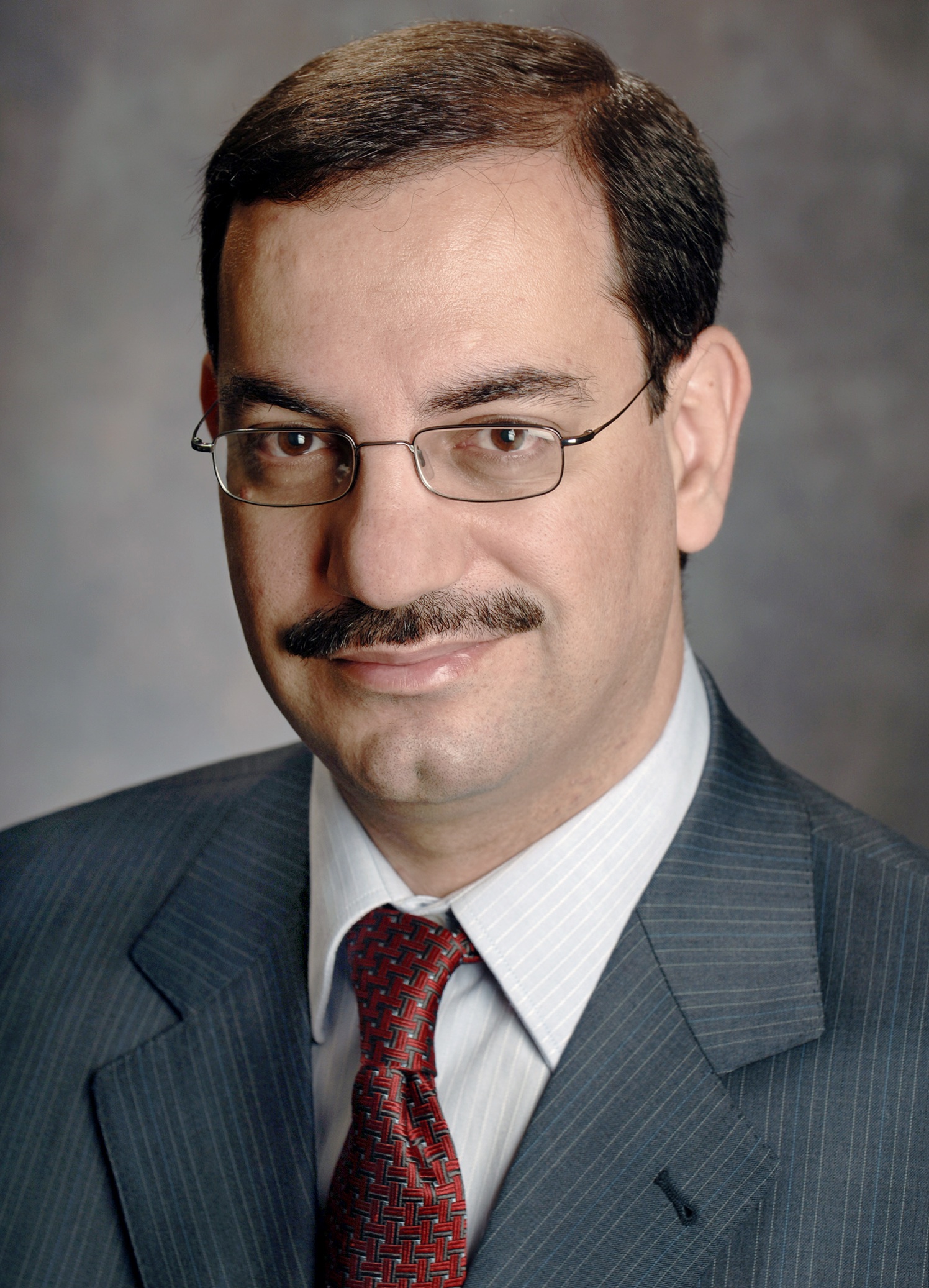 |
Ali H. Sayed |
A. H. Sayed is a distinguished professor and former chairman of electrical engineering at UCLA. An author/co-author of over 480 publications and six books, his research involves several areas including adaptation and learning, statistical inference, network and data science, and biologically-inspired designs. His work has been recognized with several awards including the 2015 Education Award from the IEEE Signal Processing Society, the 2014 Athanasios Papoulis Award from the European Association for Signal Processing, the 2013 Meritorious Service Award and the 2012 Technical Achievement Award from the IEEE Signal Processing Society, the 2005 Terman Award from the American Society for Engineering Education, and the 2003 Kuwait Prize. He has been awarded several Best Paper Awards from the IEEE, and is a Fellow of both the IEEE and the American Association for the Advancement of Science (AAAS). He is recognized as a Highly Cited Researcher by Thomson Reuters. He is currently serving as President-Elect of the IEEE Signal Processing Society during the two-year period 2016-2017, followed as President during 2018-2019.
His research interests span several areas including adaptation and learning, distributed processing, information-processing theories, network science, biologically-inspired designs, and statistical signal processing.
 |
David Tse |
David Tse received the B.A.Sc. degree in systems design engineering from University of Waterloo in 1989, and the M.S. and Ph.D. degrees in electrical engineering from Massachusetts Institute of Technology in 1991 and 1994 respectively. From 1994 to 1995, he was a postdoctoral member of technical staff at A.T. & T. Bell Laboratories. From 1995 to 2014, he was on the faculty of the Department of Electrical Engineering and Computer Sciences in the University of California at Berkeley. He is currently a professor at Stanford University.
He received a 1967 NSERC graduate fellowship from the government of Canada in 1989, a NSF CAREER award in 1998, the Best Paper Awards at the Infocom conference in 1998 and 2001, the Erlang Prize in 2000 from the INFORMS Applied Probability Society, the IEEE Communications Society and Information Theory Society Joint Paper Awards in 2000 and 2013, the Information Theory Society Paper Award in 2003, a Gilbreth Lectureship from the National Academy of Engineering in 2012, the Signal Processing Society Best Paper Award in 2012, the EURASIP Best Paper Award in 2012 and the IEEE Communications Society Stephen O. Rice Prize in 2013. For his contributions to education, he received the Outstanding Teaching Award from the Department of Electrical Engineering and Computer Sciences at U.C. Berkeley in 2008 and the Frederick Emmons Terman Award from the American Society for Engineering Education in 2009. He is a coauthor, with Pramod Viswanath, of the text Fundamentals of Wireless Communication, which has been used in over 60 institutions around the world. He is the inventor of the proportional-fair scheduling algorithm used in all third and fourth-generation cellular systems.
He was an Associate Editor of the IEEE Transactions on Information Theory from 2001 to 2003, the Technical Program co-chair in 2004 and the General co-chair of the International Symposium on Information Theory in 2015. He served on the Board of Governors of the IEEE Information Theory Society from 2003 to 2008 and from 2010 to 2013. He was the plenary speaker for many international conferences and workshops, including the IEEE International Symposium on Information Theory in 2009, the ACM International Conference on Mobile Computing and Networking (MobiCom) in 2007 and the IEEE International Conference on Acoustics, Speech and Signal Processing in 2006.
His research interests are in information theory and its applications in various fields, including wireless communication, energy and computational biology.
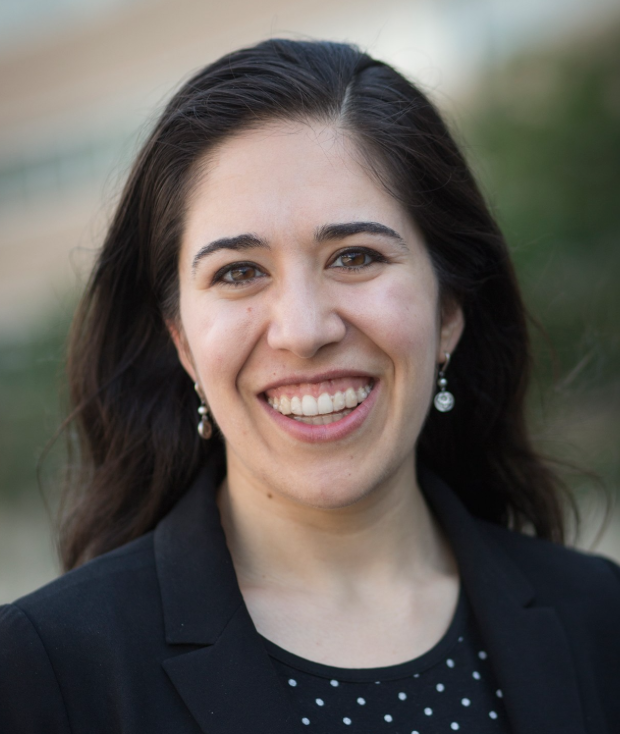 |
Madeleine Udell |
Madeleine Udell is Assistant Professor of Operations Research and Information Engineering and Richard and Sybil Smith Sesquicentennial Fellow at Cornell University. She studies optimization and machine learning for large scale data analysis and control, with applications in marketing, demographic modeling, medical informatics, and engineering system design. Her recent work on generalized low rank models (GLRMs) extends principal components analysis (PCA) to embed tabular data sets with heterogeneous (numerical, Boolean, categorical, and ordinal) types into a low dimensional space, providing a coherent framework for compressing, denoising, and imputing missing entries. She has developed of a number of open source libraries for modeling and solving optimization problems, including Convex.jl, one of the top ten tools in the new Julia language for technical computing, and is a member of the JuliaOpt organization, which curates high quality optimization software.
She completed her PhD at Stanford University in Computational & Mathematical Engineering in 2015 under the supervision of Stephen Boyd, and a one year postdoctoral fellowship at Caltech in the Center for the Mathematics of Information hosted by Professor Joel Tropp. At Stanford, she was awarded a NSF Graduate Fellowship, a Gabilan Graduate Fellowship, and a Gerald J. Lieberman Fellowship, and was selected as the doctoral student member of Stanford's School of Engineering Future Committee to develop a road-map for the future of engineering at Stanford over the next 10–20 years. She received a B.S. degree in Mathematics and Physics, summa cum laude, with honors in mathematics and in physics, from Yale University.
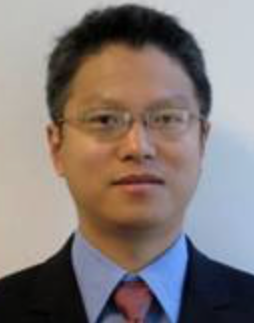 |
Yonggang Wen |
Yonggang Wen is an associate professor with School of Computer Science and Engineering at Nanyang Technological University, Singapore. He received his PhD degree in Electrical Engineering and Computer Science (minor in Western Literature) from Massachusetts Institute of Technology (MIT), Cambridge, USA, in 2008. Previously he has worked in Cisco to lead product development in content delivery network, which had a revenue impact of 3 Billion US dollars globally. Dr. Wen has published over 140 papers in top journals and prestigious conferences. His work in Multi-Screen Cloud Social TV has been featured by global media (more than 1600 news articles from over 29 countries) and received ASEAN ICT Award 2013 (Gold Medal). His work on Cloud3DView, as the only academia entry, has won the Data Centre Dynamics Awards 2015 – APAC. He is a co-recipient of 2015 IEEE Multimedia Best Paper Award, and a co-recipient of Best Paper Awards at EAI/ICST Chinacom 2015, IEEE WCSP 2014, IEEE Globecom 2013 and IEEE EUC 2012. He serves on editorial boards for IEEE Transactions on Circuits and Systems for Video Technology, IEEE Wireless Communication Magazine, IEEE Communications Survey & Tutorials, IEEE Transactions on Multimedia, IEEE Transactions on Signal and Information Processing over Networks, IEEE Access Journal and Elsevier Ad Hoc Networks, and was elected as the Chair for IEEE ComSoc Multimedia Communication Technical Committee (2014-2016).
His main area of research lies in learning-based system development and performance optimization for large-scale networked computing systems. His current research interests include big-data platform (BDP), green data center (GDC), cloud-computing platform, multi-screen Social TV system, software-defined system, information-centric networking (ICN), and smart building
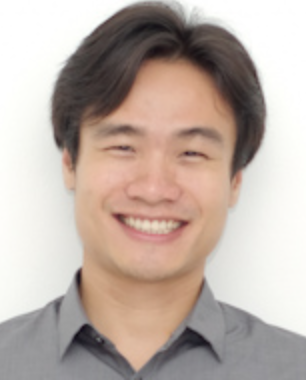 |
Xiaokui Xiao |
Xiaokui Xiao is an associate professor and Assistant Chair (Strategic Research) at the School of Computer Science and Engineering, Nanyang Technological University (NTU), Singapore. He received his PhD degree from the Chinese University of Hong Kong in 2008. Before joining NTU in 2009, he was a postdoctoral associate at the Cornell University. His research focuses on database management, especially on data privacy, spatial databases, and graph algorithms. He has published extensively in the premier database conferences and journals, including SIGMOD, VLDB, ICDE, TODS, VLDBJ, and TKDE. His research is recognized by the 2010 Nanyang Assistant Professorship Award the 2009 Hong Kong Young Scientist Award in Physical/Mathematical Science.
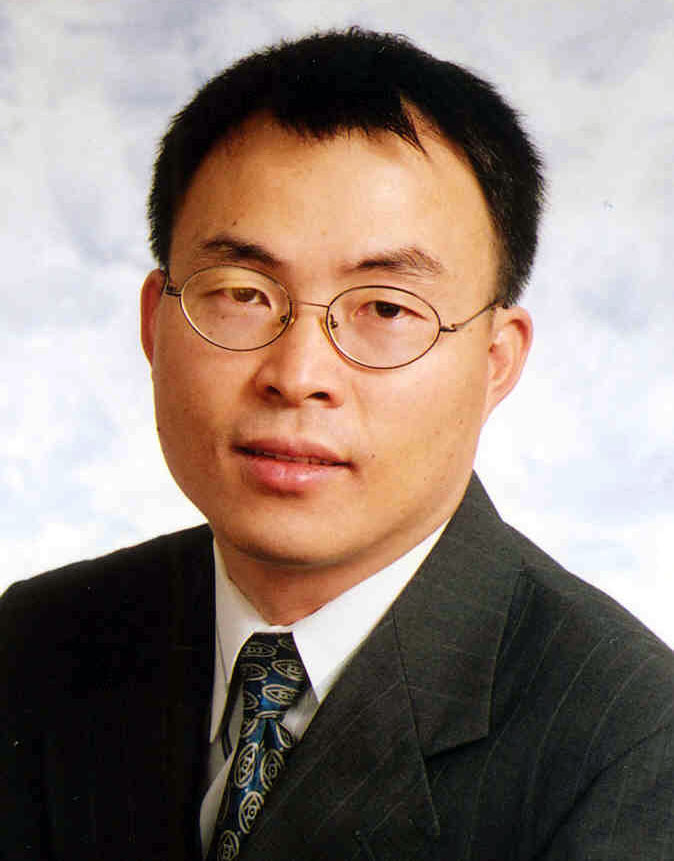 |
Zixiang Xiong |
Zixiang Xiong received his Ph.D. degree in electrical engineering from the University of Illinois at Urbana-Champaign in 1996. He is a professor in the ECE department of Texas A&M University. His main research interest lies in image/video processing, networked multimedia, and multi-user information theory.
Dr. Xiong received a National Science Foundation Career Award in 1999, an Army Research Office Young Investigator Award in 2000, an Office of Naval Research Young Investigator Award in 2001, and the 2006 IEEE SIGNAL PROCESSING MAGAZINE Best Paper Award. He also received top 10% paper awards at the IEEE Multimedia Signal Processing Workshops in 2011 and 2015. He served as an Associate Editor for five IEEE Transactions. He was the Publications Chair of ICASSP 2007, the Technical Program Committee Co-Chair of ITW 2007, the Tutorial Chair of ISIT 2010, and the Awards Chair of Globecom 2014. He is a fellow of the IEEE.
His research interests include image processing, source-channel coding, biomedical engineering, network information theory, code designs and applications.
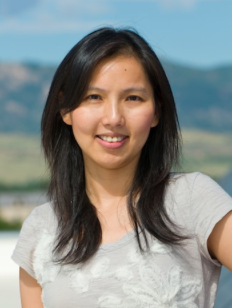 |
Liuqing Yang |
Liuqing Yang received her Ph.D. degree in Electrical and Computer Engineering from the University of Minnesota, Minneapolis, in 2004. She is presently a Professor with Colorado State University. Her general interests are in signal processing with applications to communications, networking and power systems – subjects on which she has published more than 250 journal and conference papers, 4 book chapters and 2 books. Dr. Yang was the recipient of the Best Dissertation Award in the Physical Sciences & Engineering from the University of Minnesota in 2004, the Best Paper Award at the IEEE ICUWB’06, ICCC’13, ITSC’14, Globecom’14, ICC’16, and WCSP’16, the ONR Young Investigator Program (YIP) award in 2007, and the NSF Faculty Early Career Development (CAREER) award in 2009. She has served as an active reviewer for more than 10 journals, as TPC chair/member for a number of conferences, and as an associate editor for IEEE Transactions on Communications, IEEE Transactions on Wireless Communications, IEEE Transactions on Intelligent Transportation Systems, IEEE Intelligent Systems, and PHYCOM: Physical Communication. Dr. Yang is an IEEE Fellow, and has been the co-chair of the Mobile Communication Networks technical committee of the IEEE ITSS since 2006.
Her main research interests include communications and signal processing.
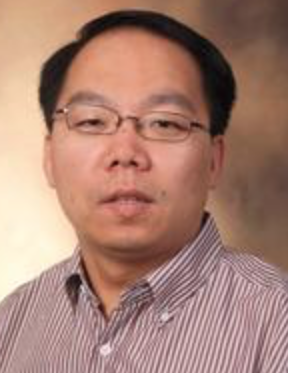 |
Jieping Ye |
Jieping Ye received the PhD degree in computer science from the University of Minnesota, Twin Cities, in 2005. He is currently an associate professor of computer science and engineering at Arizona State University. His current research interests include machine learning, data mining, and biomedical informatics. He received the Outstanding Student Paper Award at the International Conference on Machine Learning in 2004, the SCI Young Investigator of the Year Award at Arizona State University in 2007, the SCI Researcher of the Year Award at Arizona State University in 2009, the US National Science Foundation (NSF) CAREER Award in 2010, and the KDD best research paper award honorable mention in 2010.
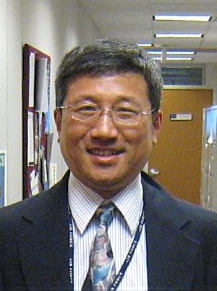 |
Jun Zhang |
Jun Zhang is a Professor of Psychology and Professor of Mathematics with the University of Michigan, Ann Arbor. He received the B.Sc. degree in Theoretical Physics from Fudan University in 1985, and Ph.D. degree in Neurobiology from the University of California, Berkeley in 1992. He then joined the faculty of the University of Michigan, Department of Psychology, where he became a Full Professor in 2007. He has also held visiting positions at the University of Melbourne in Australia, CNRS Marseille in France, the University of Waterloo in Canada, RIKEN Brain Science Institute in Japan, and at Center for Mathematical Sciences and Applications at Harvard University. He has served as the President, Vice President, and Executive Board Member of the Society for Mathematical Psychology, and he is currently an Associate Editor for the Journal of Mathematical Psychology. He is a Fellow of the Association for Psychological Sciences (APS), and a Fellow of Psychonomic Society. He served as a Council Member and now at Member-at-Large on the Governing Board of the Federation of Associations in Brain and Behavioral Sciences (FABBS). Dr. Zhang’s scholarly research is in the area of mathematical psychology, computation neuroscience, machine learning, information geometry, etc. His research received U.S. federal grant supports from the National Science Foundation (NSF), Air Force Office for Scientific Research (AFOSR), Army Research Office (ARO), and Defense Advanced Research Projects Agency (DARPA).
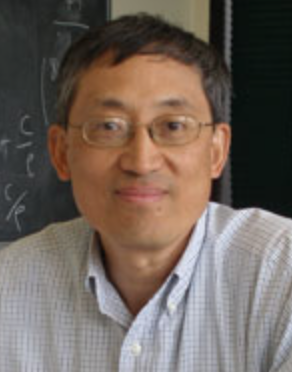 |
Yin Zhang |
Yin Zhang received the B.S. degree in environmental engineering from Chongqing Institute of Architecture and Engineering, Chongqing, China, in 1977 and the Ph.D. degree in applied mathematics from the State University of New York at Stony Brook in 1987. He is a Professor in the Department of Computational and Applied Mathematics at Rice University, Houston, TX.
His current research interests include computational optimization in general, optimization algorithms and applications in image, signal and data processing, compressive sensing, computational medicine, and other application areas.
Invited Guests
钟海 副主任 深圳市科技创新委员会
沈佐伟 院长 国立新加坡大学理学院
刘军 CEO 识凌科技